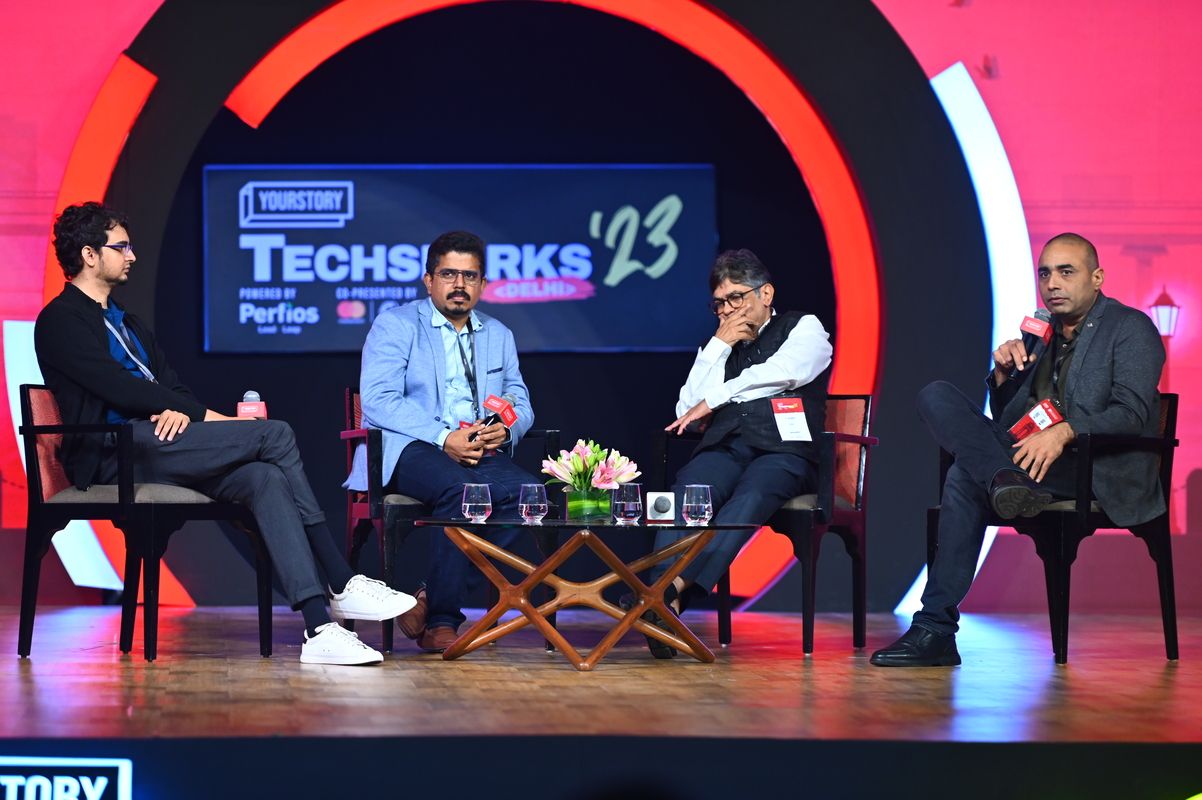
Over the past 18 months, UPI’s (unified payments interface) meteoric rise and the promising debut of ONDC (open network for digital commerce) have captured the attention of not just India but the world over.
At TechSparks 2023 in Delhi, T Koshy, the CEO of ONDC, Sujith Nair, Co-founder and CEO of FIDE, and Vivek Lohcheb, CEO of Pincode, delved into the intricacies of these platforms and their functionality within open networks.
UPI transactions crossed the 11 billion mark in October 2023 with a transaction value of more than Rs 17 lakh crore. ONDC, meanwhile, clocked more than 6 million orders in September, from just a few thousand in January.
UPI’s exponential growth and ONDC’s successful launch serve as a testament to the potential of these groundbreaking initiatives. Experts foresee a revolution in India’s ecommerce landscape, driven by these platforms.
“Each sub-vertical (of commerce) has its different nuances. As a consumer, you have to go to maybe 50 different applications from 50 different verticals. There’s no one company that can solve it all because of the depth it requires,” said Lohcheb of Pincode.
“It is about enabling the businesses that are present in those verticals. An ONDC network allows multiple players—smaller and bigger—to have a play. One platform could want to digitise seller platforms in Agra. It has a play for bigger and smaller players to come together and coexist,” he added.
Corroborating Lohcheb, Koshy explained how every business in the entire commerce supply chain will have relevance on the ONDC platform. He also added that ONDC is conducting a hackathon in the first week of December, where he expects 100,000 people to participate to develop ‘futuristic ideas’ based on new technology like artificial intelligence.
Koshy, Lohcheb, and Nair also explored the workings of open networks and their potential to significantly influence the nation’s economy in the foreseeable future. Nair, a pioneer of the open network ecosystem is an angel donor to Beckn protocol, an open-source initiative that creates decentralised digital ecosystems.
Explaining how open networks work, Nair said, “Our lives revolve around the internet today. So the internet is an open network. Our mobile phone technology is an open network of emails. Our very own UPI is an open network. The idea therefore is that it is impossible for any tool nodes.”
“The nodes could be platforms, the load could be your devices, talking to each other without having to be on one central system of any sense,” he added. “Open network has a far more ability to scale and penetrate than one platform can and that unlocks the power.”
Edited by Affirunisa Kankudti



![Read more about the article [Product Roadmap] Focusing on cyber fusion centres, Cyware is helping enterprises upgrade cybersecurity](https://blog.digitalsevaa.com/wp-content/uploads/2021/11/Cyware-1637666887435-300x150.png)



![Read more about the article [Funding alert] D2C beauty brand MyGlamm raises Rs 355 Cr from Accel Partners, others](https://blog.digitalsevaa.com/wp-content/uploads/2021/07/85080f7239feebc4809b9e4a19856740eed3465e491dd8f6de1a57d885e6c67d-1625201880859-300x150.png)


